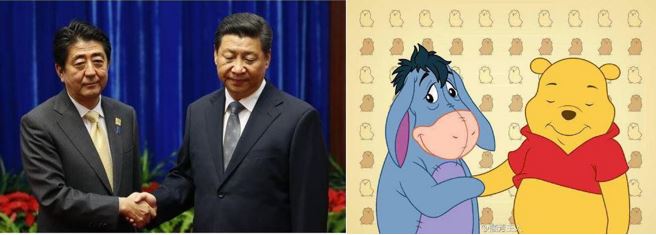World
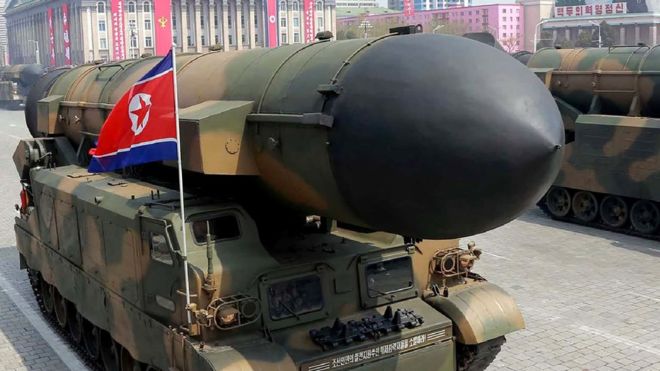
North Korea lashes out at US diplomats over sanctions
North Korea has lashed out again at the US for not lifting sanctions against the country. The foreign ministry said it had made various goodwill gestures, and yet the US was still following an "outdated acting script" and jeopardising any moves towards denuclearisation.
North Korea remains under a range of international and US sanctions over its nuclear programme and missile tests. The US wants full nuclear disarmament before sanctions can be lifted.
President Donald Trump and North Korean leader Kim Jong-un agreed in June to work towards de-nuclearization of the Korean peninsula.
But the details of that process remain vague - North Korea did not commit to unilaterally give up its nuclear weapons. Last week, a leaked UN report said the country had not stopped building weapons - which prompted the US to call on the international community to keep enforcing sanctions.
Source : BBC
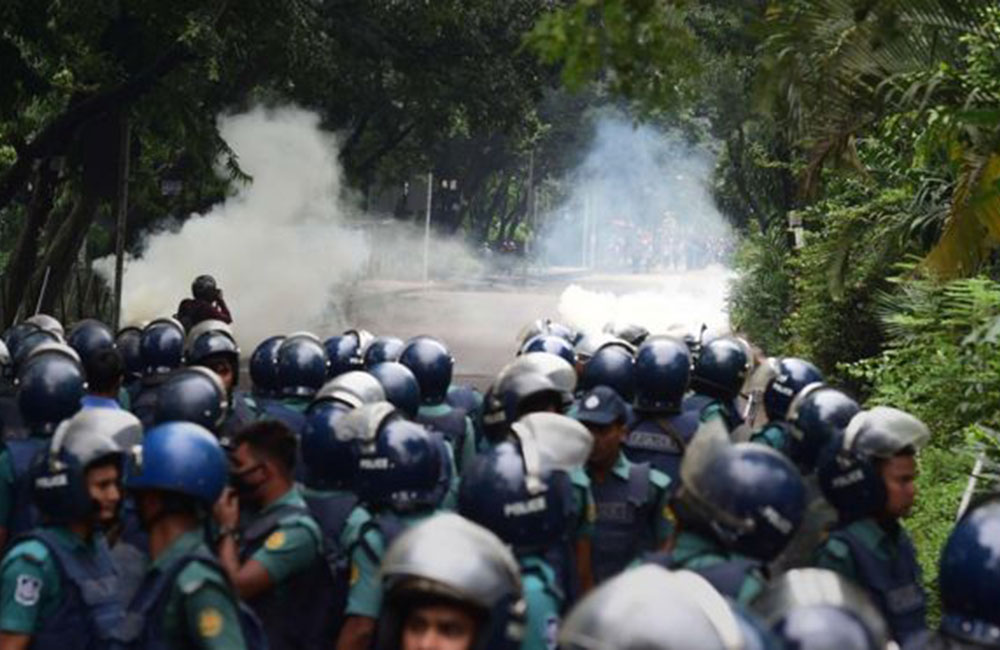
Bangladesh violence: Armed men attack US envoy's cars amid protests
Armed men attacked a convoy of cars carrying the US envoy to Bangladesh in the capital Dhaka on Saturday night, US officials said.
Ambassador Marcia Bernicat and her security team were able to get away unharmed, but two cars were damaged. It comes as thousands of students and school children continue a week-long protest calling for safer roads.
Police have fired tear gas to disperse the crowds. Dozens of protesters have also been injured in street attacks. The US ambassador condemned the violence against the peaceful protesters on Sunday.
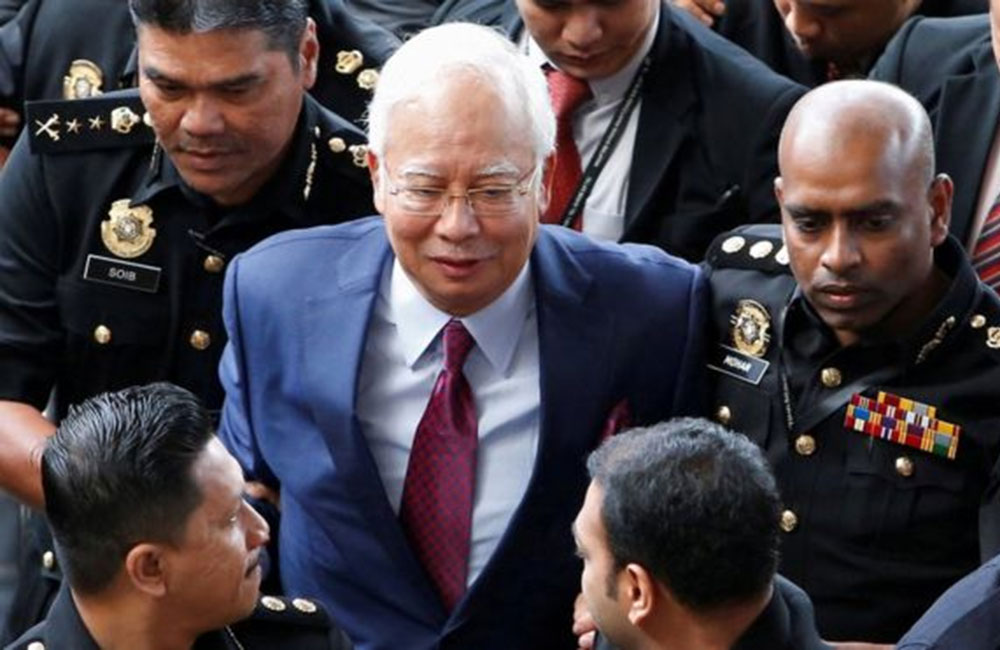
Malaysia ex-PM Najib charged with money laundering
Former Malaysian Prime Minister Najib Razak has been charged with three counts of money laundering linked to a multi-million dollar corruption scandal. He is accused of having received 42m ringgit ($10m; £8m) from state fund 1MDB in his personal bank account.
Najib was arrested in July and has already been charged with breach of trust and abusing his position. The new investigation into 1MDB began after his shock election loss in May. He has always denied any guilt and had been cleared by Malaysian authorities while in power.
Najib, members of his family and several allies are accused of embezzling huge sums allegedly used to buy everything from artwork to high-end real estate around the globe. The allegations played a central role in his defeat to a reformist alliance led by 93-year old political veteran Mahathir Mohamad.
Raids have been carried out in recent weeks at properties linked to Najib and his wife. Police say the seizure of valuables - including designer handbags, jewellery and cash - was the biggest in Malaysian history.
1MDB, set up by Najib in 2009, was meant to turn the capital, Kuala Lumpur, into a financial hub and boost the economy through strategic investments.It started to attract negative attention in early 2015 after it missed payments for some of the $11bn it owed to banks and bondholders. Then the Wall Street Journal reported it had seen a paper trail that allegedly traced close to $700m from the fund to Najib's personal bank accounts. Billions of dollars are still unaccounted for.

Venezuela’s Maduro target of drone ‘attack,’ but unharmed: government
governmentVenezuelan government officials condemned what they said were terrorist attacks on Saturday. A broadcast by Maduro was cut short as he delivered the speech at an outdoors military event in Caracas and soldiers were seen running before the televised transmission was cut off.Drones loaded with explosives detonated close to a military event where Venezuelan President Nicolas Maduro was giving a speech on Saturday, but he and top government officials alongside him escaped unharmed from what Information Minister Jorge Rodriguez called an “attack” targeting the leftist leader.
Seven National Guard soldiers were injured, Rodriguez added. A Venezuelan who was visiting family close to the event in Caracas told Reuters she heard two explosions.
Photographs on social media appeared to show bodyguards shielding Mr. Maduro with black bulletproof panels. A photograph also showed an injured military official clutching his bloody head and being held up by colleagues.
Maduro, a former bus driver who replaced former President Hugo Chavez after his death in 2013, won a new six-year term in May but his main rivals disavowed the election and alleged massive irregularities.
Venezuelan government officials condemned what they said were terrorist attacks on Saturday. A broadcast by Maduro was cut short as he delivered the speech at an outdoors military event in Caracas and soldiers were seen running before the televised transmission was cut off.
While Maduro was speaking about Venezuela's economy, the audio suddenly went and he and others on the podium looked up, startled. The camera then panned to scores of soldiers who started running, before the transmission was cut.
Venezuela is suffering under the fifth year of a severe economic crisis that has sparked malnutrition, hyperinflation and mass emigration.
OPEC member Venezuela's once-thriving socialist economy has collapsed since the 2014 fall of oil prices.
The self-described “son” of Chavez, Maduro says he is battling an “imperialist” plot to destroy socialism and take over Venezuela's oil. Opponents accuse him of authoritarianism, saying he has destroyed a once-wealthy economy and ruthlessly crushed dissent.
Last year, rogue police officer Oscar Perez hijacked a helicopter and fired at government buildings in what he said was an action against a dictator. Perez was hunted down and killed by Venezuelan forces.
Source : Reuters
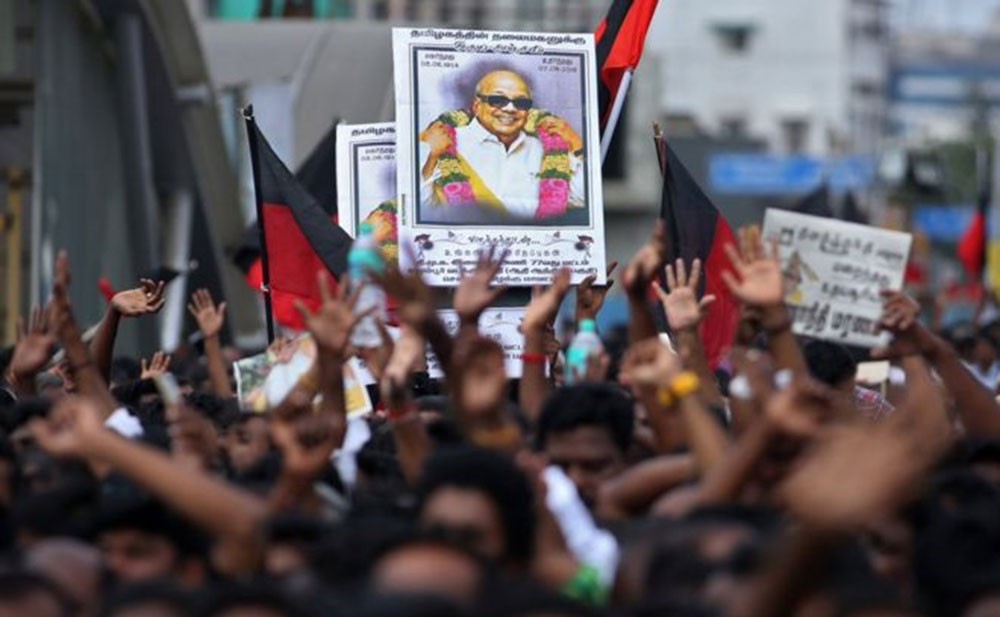
Deadly stampede among Karunanidhi mourners
Two people have died in a stampede at the funeral procession of veteran Indian politician Muthuvel Karunanidhi, in the southern city of Chennai. In addition, 41 people were taken to hospital with injuries, officials said. Karunanidhi, who died on Tuesday aged 94, had served five times as chief minister of Tamil Nadu, the state of which Chennai is capital.
Police struggled to control thousands of mourners on Wednesday. The stampede occurred when crowds tried to surge past police at the entrance to the building where Karunanidhi lay in state. He is being buried at Marina Beach in Chennai, alongside his mentor, CN Annadurai.
Karunanidhi helped found the Dravida Munnetra Kazhagam (DMK) party in 1949 and continued to lead it until his death. Starting in 1957, he contested and won 13 elections in Tamil Nadu.
Source : BBC
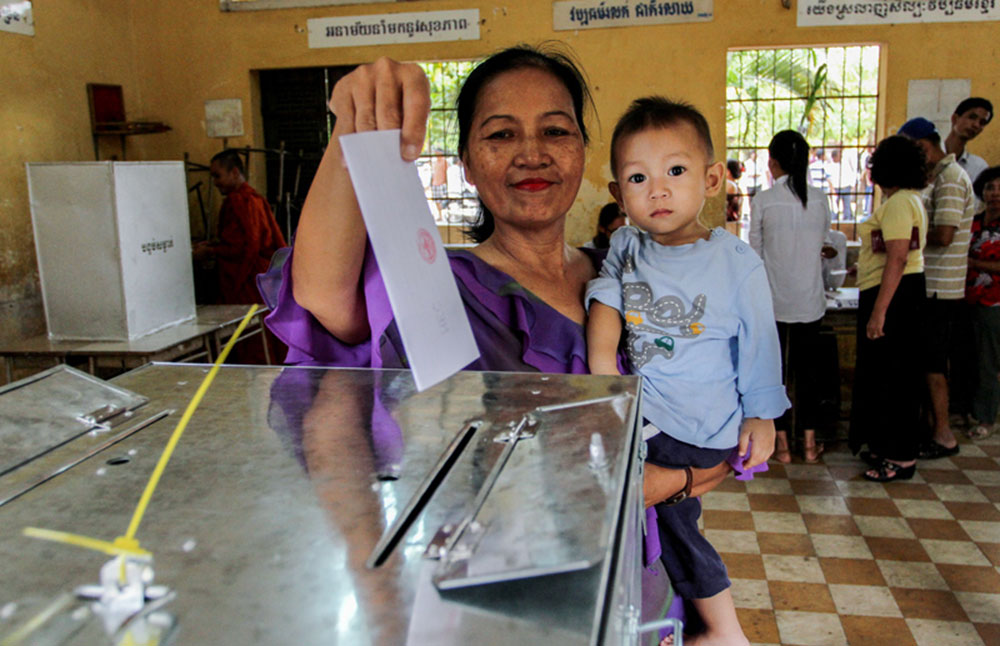
Cambodians head to the polling stations
Cambodian voters on Sunday headed to the polling stations for the country’s sixth general election to elect 125 parliament members from 20 political parties. Polling began at 07:00 local time at nearly 23,000 polling stations and is due to close at 15:00 the same day.
Some 8.38 million eligible voters are expected to cast their ballots to choose their representatives in the country’s top legislature from political parties, including the Cambodian People’s Party and Union of Cambodian Democrats.
The winning party will form a new government. In capital Phnom Penh, residents started to vote early Sunday morning at different polling stations. Most of them hope for a better life no matter which party wins.
“I hope to see in the future, that the education in the country will be improved because the education system is lagging behind, especially in some remote areas. I hope that the next government can make education accessible to more,” said Soragena, a teacher.
“No matter which party wins, I hope that the Cambodian people can unite together and the country can progress, everyone would have a job, the salary would go up and the living standards would be improved. I hope that our living standards can catch up with our neighbor countries,” said Lenlalim, an employee in the tourism industry.
The Cambodian government has sent out about 70,000 security guards; in addition, nearly 90,000 Cambodian observers, as well as over 300 foreign observers, are monitoring the election. The preliminary results are expected to be announced on Sunday evening.
The Southeast Asian country holds a general election once every five years.
Source : Reuters
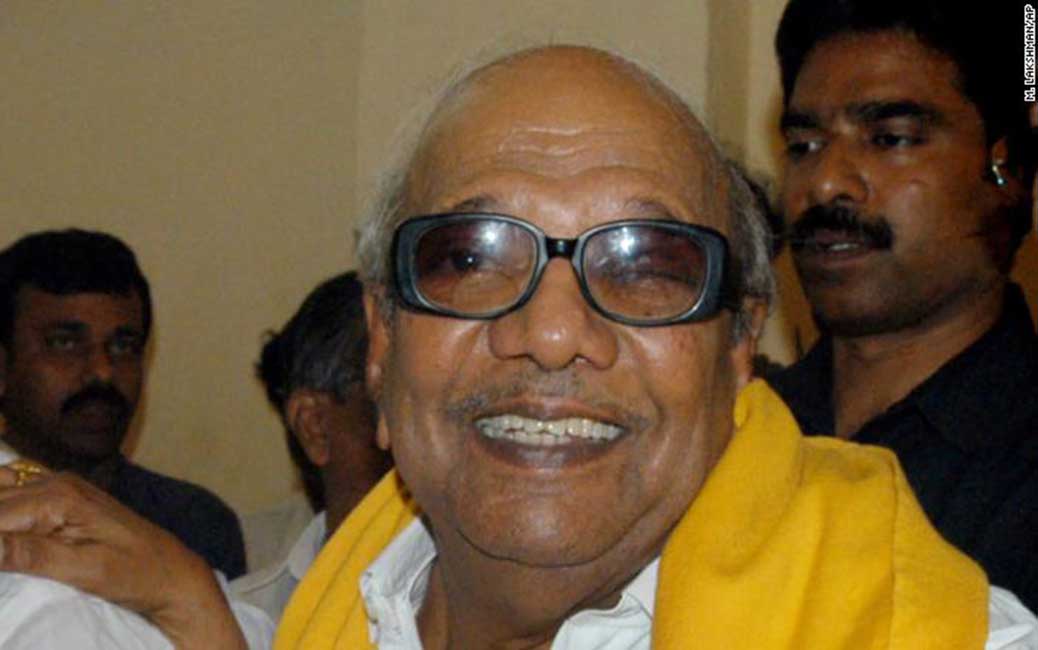
M. Karunanidhi, Indian political icon, dies at 94M.
Muthuvel Karunanidhi, one of India's longest-serving politicians, died Tuesday at the age of 94. Karunanidhi, chief of the Dravida Munnetra Kazhagam (DMK) party in southern Tamil Nadu state, was admitted into the hospital on July 28 after a drop in his blood pressure.
A statement released by the hospital said that "despite the best possible efforts of our team of doctors and nurses to resuscitate him, he failed to respond".
"We have lost a deep-rooted mass leader, prolific thinker, accomplished writer and a stalwart whose life was devoted to the welfare of the poor and the marginalized," tweeted Indian Prime Minister Narendra Modi.
Thousands gathered outside Kauvery hospital in the city of Chennai to offer their condolences. Karunanidhi, a former scriptwriter in the Tamil film industry, has served as the state's chief minister five times in the past.
Source : CNN
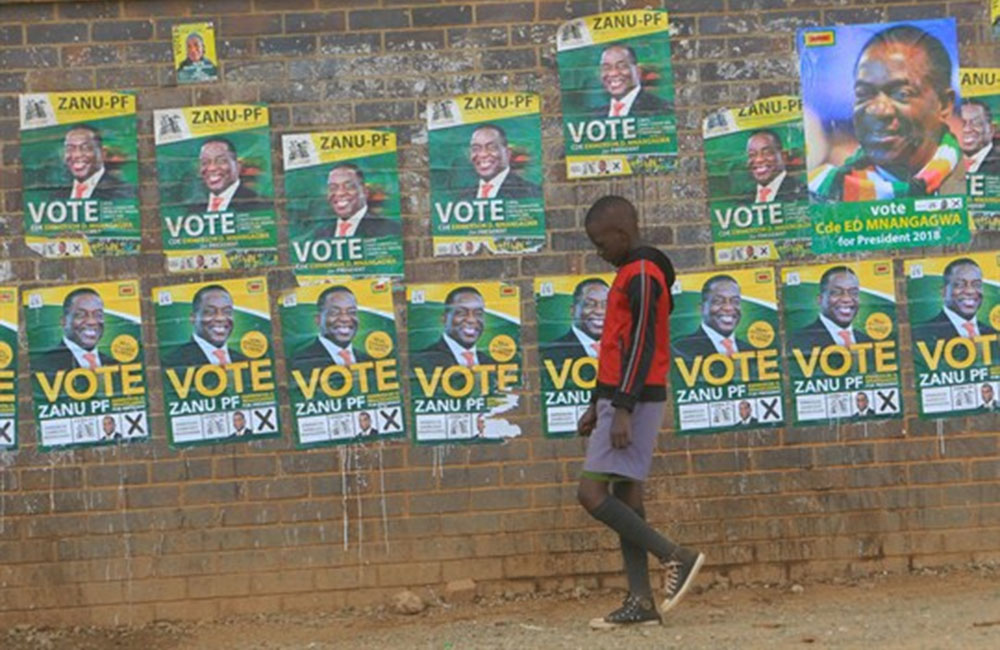
Zimbabwe election: First vote without Mugabe
Voters in Zimbabwe are going to the polls in the country's first election without the involvement of long-time leader Robert Mugabe.
The country's founding president, Mr Mugabe was ousted last year after almost four decades in power.
The main contenders in the presidential vote are incumbent Emmerson Mnangagwa, of the ruling Zanu-PF party, and opposition leader Nelson Chamisa.
Parliamentary and local elections are also taking place on Monday.
Polls give Mr Mnangagwa, thought to be 75, a narrow lead over his 40-year-old rival, who leads the MDC (Movement for Democratic Change) Alliance.
The country is expecting a high turnout of first-time voters, where the youth vote is expected to be key. Almost half of those registered are under the age of 35.
Hundreds of international observers have been deployed to ensure the vote goes smoothly, but the opposition has repeatedly alleged irregularities in the voter roll.
They have also expressed concern over the security of ballot papers and voter intimidation in mainly rural areas.
Source : BBC
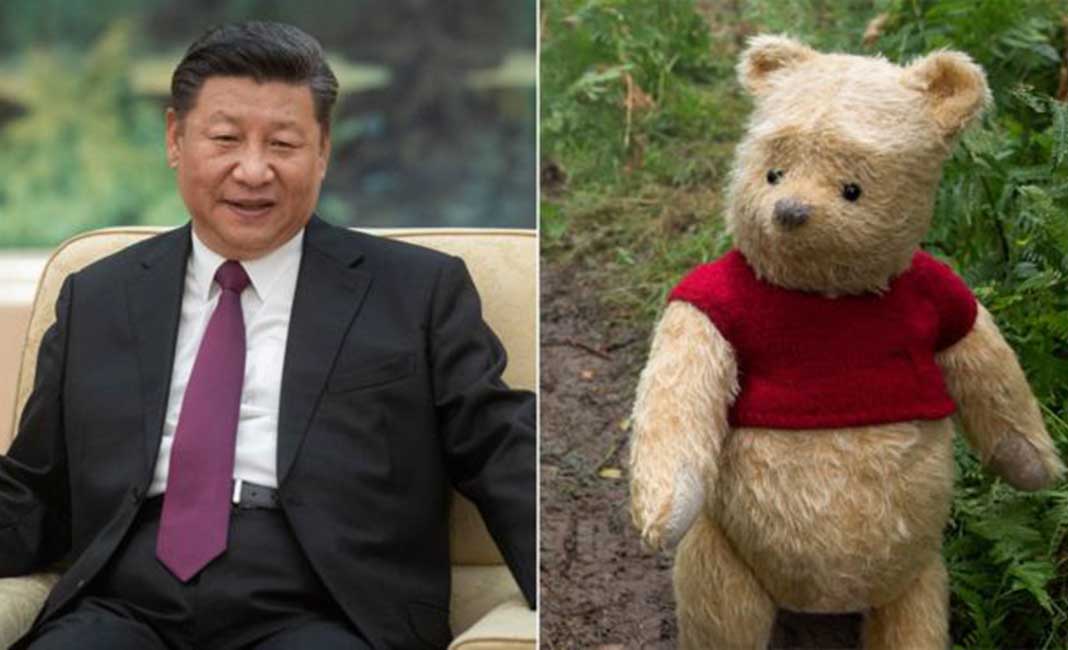
Christopher Robin: Winnie the Pooh film denied release in China
China's film authorities have denied a release to Disney's new Winnie the Pooh film, Christopher Robin, it's reported.
No reason has been given for the decision, but it's believed to be part of a nationwide clampdown on references to the beloved children's character.Chinese authorities have been blocking images of Pooh on social media since last year, after the AA Milne bear became a symbol of political dissent.
It's after the Chinese leader Xi Jinping has been compared to the bear.
The comparisons began in 2013 when an image of Xi walking with President Barack Obama was posted alongside a picture of Pooh walking next to Tigger.
Then in 2014, a picture of Xi shaking hands with Japanese Prime Minister Shinzo Abe was shared along with a picture of Pooh with Eeyore.
As the memes grew popularity, Chinese censors began blocking images, GIFs and mentions of the bear across social media.
In 2015, a picture showing Xi in a motorcade alongside an image of a Winnie the Pooh in a toy car was called "China's most censored photo" by political analysis company Global Risk Insights.
And in June, China censored comedian John Oliver and HBO's website after the British talkshow host ran a segment on his US show, Last Week Tonight, criticising Xi and China. In the roast, he also mentioned the President's sensitivity to being compared to the bear.
Global Risk Insights suggests the censorship of Pooh bear may be taking place because the comparisons with the President are seen by Beijing as "a serious effort to undermine the dignity of the presidential office and Xi himself".
The Hollywood Reporter notes, however, that China has an annual foreign film quota - currently set at 34 - and that the Chinese market is likely to be more interested in different films.
Disney's A Wrinkle in Time was also denied a release in China earlier this year but Skyscraper, Mission Impossible: Fallout, and Ant-Man and The Wasp are among Disney's offerings to open in the country.
Christopher Robin is a live action film starring Ewan McGregor as the leading role and tells the story of Robin reuniting with the honey-loving bear as an adult and rediscovering his playful imagination.
Source: BBC
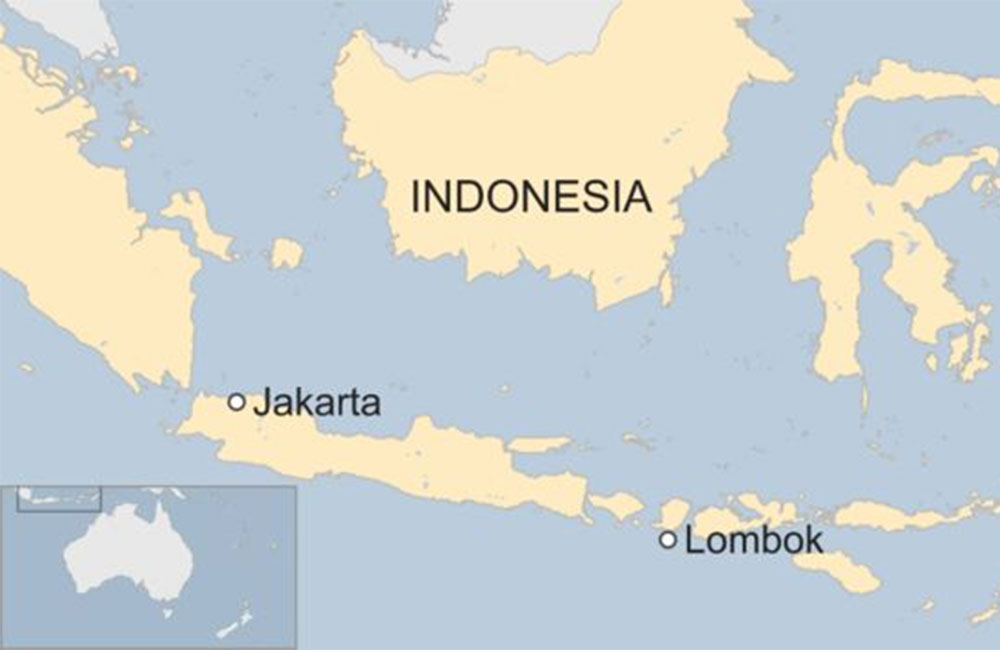
Deadly earthquake hits Indonesia tourism hotspot
A powerful earthquake has struck a popular tourist destination in Indonesia, killing at least 10 people.The 6.4 magnitude quake hit the central Indonesian island of Lombok just before 07:00 local time (00:00 GMT) on Sunday. The island attracts tourists from around the world and is located about 40km (25 miles) east of Bali. Many buildings have been damaged and dozens of people have been injured, officials say.
The US Geological Survey said the epicentre of the earthquake was 50km (31 miles) northeast of the city of Mataram, in northern Lombok. It was followed by more than 60 smaller earthquakes, with the largest recorded at a magnitude of 5.7.
"Some 40 people are injured and dozens of houses were damaged," Sutopo Purwo Nugroho, a spokesman for the country's disaster agency, said in a statement."We estimate the number will keep rising because we are not done collecting data," he added. "The main focus now is evacuation and rescue. Some of the injured are still being treated at clinics."he said.
Source : BBC
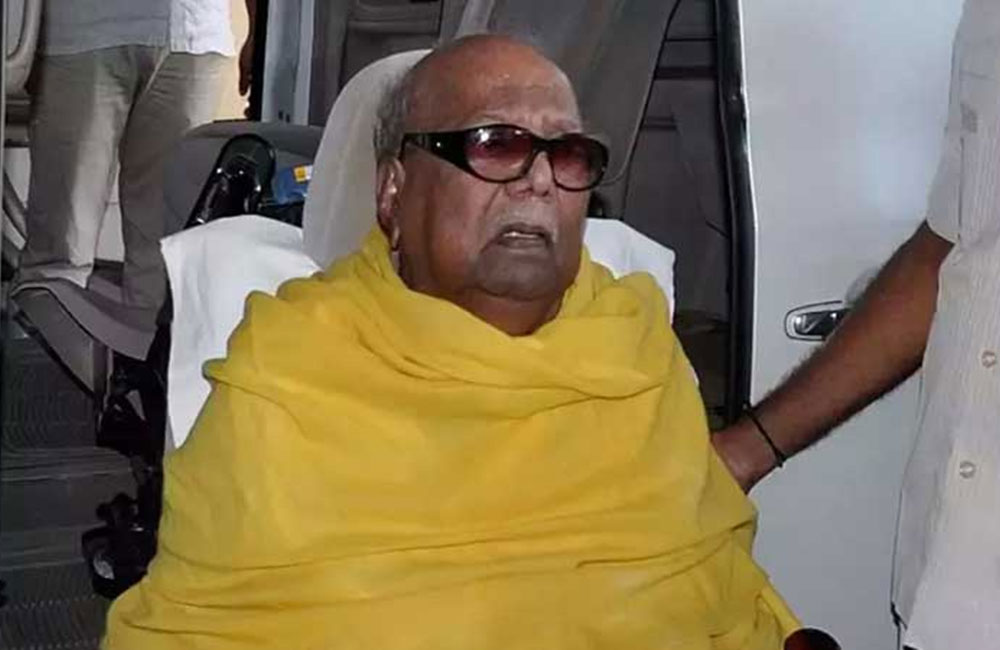
Karunanidhi's Health Worsens, "Maintaining Vitals A Challenge": Hospital
The health of DMK patriarch M Karunanidhi, who is admitted in Chennai's Kauvery hospital for more than a week, has taken a turn for the worse. The hospital said maintaining his vital organ functions remains a challenge in view of his age-related ailments.
"He is on continuous monitoring and being treated with active medical support. His response to the medical intervention over the next 24 hours will determine the prognosis," a statement from the hospital read.
Hospital and DMK sources said Karunanidhi contracted jaundice and is facing difficulty breathing, which is leading to a "fluctuation in his condition".
The 94-year-old was admitted in hospital on July 28 after he contracted urinary tract infection. After a health scare days later, the doctors had advised a longer stay "due to age related overall decline in his general health, altered liver function and haematological parameters".
Since then, President Ram Nath Kovind, Vice President Venkiah Naidu and a number of political leaders across party lines - including Congress chief Rahul Gandhi, actor-politicians Kamal Haasan and Rajinikanth -- have visited him in the hospital.
Karunanidhi was recovering from illness when he contracted the infection last month. He had to be admitted in hospital when his fever spiked.
A five-time Chief Minister of Tamil Nadu, Karunanidhi has lately been living a secluded life. For more than a year, he has not made any public appearance except occasional visits to his party office. On July 18, he was admitted in hospital for a change of tracheostomy tube.
On July 29, when his health suffered a setback, thousands of DMK workers and supporters had hit the streets, praying through the night for "Kalaignar" (artiste) to get better. Chief Minister Palaniswamy had cut short his visit to Salem. But the crisis passed and in a late night bulletin, the hospital called it was a "transient setback".
Source : NDTV
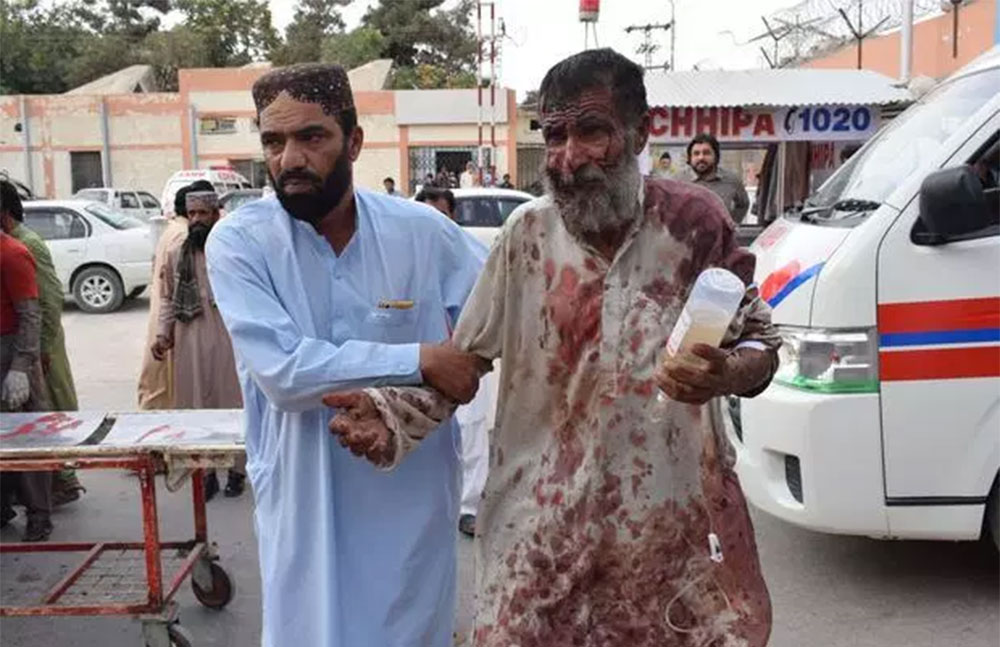
Bomb attacks hit voters in Pakistan
Violence has erupted as millions head to the polls in Pakistan, with the worst incident seeing at least 31 killed by a bomb in the city of Quetta. Elsewhere, minor blasts and clashes between party workers left several injured and two dead.
Voters are deciding between the parties of the former cricket star Imran Khan and the disgraced former Prime Minister Nawaz Sharif. But the campaign has been overshadowed by concerns of fraud and violence. The Human Rights Commission of Pakistan says there have been "blatant" attempts to manipulate the polls.
Despite tight security across the country, with more than 370,000 troops and hundreds of thousands more police officers deployed to secure the ballot, there have been incidents of violence.
Officials say the attack in Quetta, in Balochistan province, was the work of a suicide bomber targeting police at the gate of a polling station. The Islamic State (IS) group said it was behind the attack.
Source : BBC
Page 20 of 41

